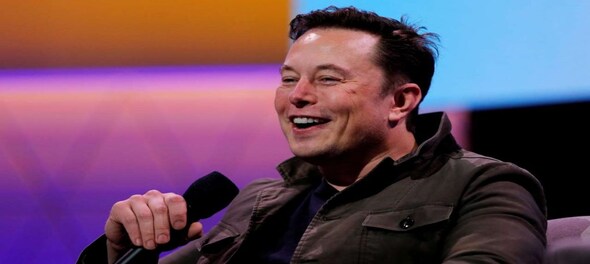
There's no denying that in the past few days, relations have been fraught between Twitter's billionaire owner Elon Musk and the British Broadcasting Corporation (BBC), following Musk's "government-funded" jibe.
To no one's surprise, the Twitter Spaces interview with BBC reporter James Clayton turned contentious when the latter brought up the issue of a perceived increase in hate speech in Twitter, prompting Musk to turn combative.
Clayton pointed out the fact that many accounts that had previously blocked for hate speech — including former US president Donald Trump's — were reinstated when Musk took over.
"I think the issue some people have is that a lot of people were brought back, (who spread) QAnon conspiracies, hate speech, etc — do you prioritise freedom of speech over hate speech or misinformation?"
Musk got defensive.
"Misinformation, hate speech — who's to say that something is information? Who has the opportunity? So I'm saying one person's specification is another person's calculation," the Twitter boss shot back.
"...the point is for Twitter (to be) a town square... that diverse root that gives an equal voice to the the whole country, the whole world. It should not be (marred by) partisan politics, moral politics," Musk said.
But when Clayton pressed the issue further, Musk rejoined with: "Information can be dangerous, it can cause real harm. The BBC itself has at times published things that are false Do you agree?"
Clayton conceded this point, saying the BBC, in its 100-year history, might have published or broadcast things that later turned out to be incorrect. But he quickly pivoted and said he has noticed an increase in hate speech in his Twitter 'for you' feed and that was the reason he doesn't use the feed anymore.
"I'm not going to speak for the rest of of Twitter users but personally, I would see more hateful content," Clayton said.
Pat came Musk's reply, " Can you name one example?"
Clayton admitted he could not.
Musk pressed his point home. "I'm asking for one example, right? You don't know where you're talking about really ... because you can't name a single example ... not even one tweet. And yet you claimed hateful content was high. Well, that's false."
This seemed to force Clayton on the back foot and say, "Let's talk about something else ... we have we only have a certain amount of time."
(Edited by : Shoma Bhattacharjee)
Check out our in-depth Market Coverage, Business News & get real-time Stock Market Updates on CNBC-TV18. Also, Watch our channels CNBC-TV18, CNBC Awaaz and CNBC Bajar Live on-the-go!


Stampede-like situation disrupts Rahul Gandhi, Akhilesh Yadav's joint rally in Uttar Pradesh
May 19, 2024 4:26 PM
Ladakh Lok Sabha election: With Independent candidate's entry, it's now a 3-way contest for BJP and Congress
May 19, 2024 4:01 PM

